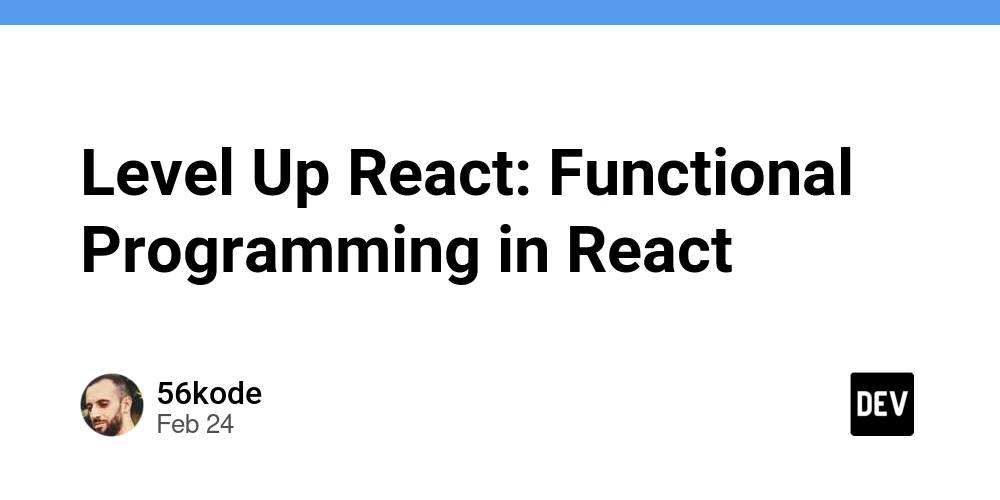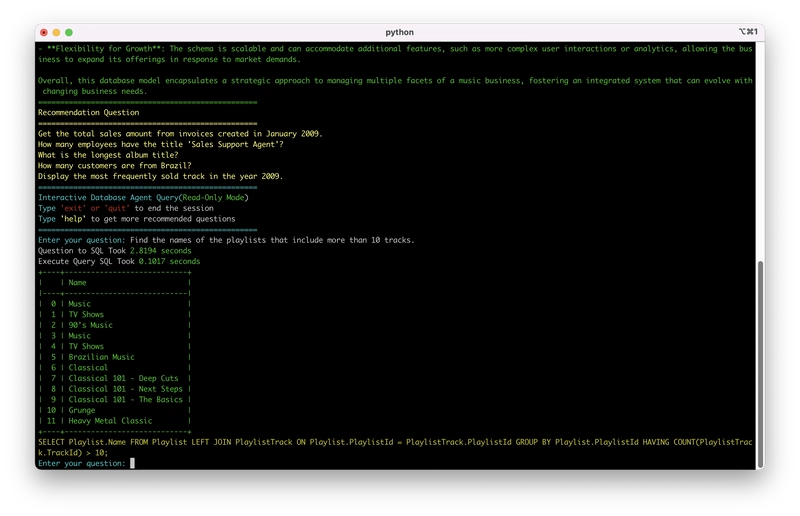Level Up React: Functional Programming in React
Want to write more predictable, testable, and maintainable React code? Functional programming is your secret weapon! React uses functional programming principles at its core, but many developers don't fully understand how these concepts power the library. In my latest Level Up React article, we explore the key functional programming concepts that make React so effective: // Imperative approach - harder to reason about let sum = 0; for (let i = 1; i acc + current, 0); We dive into practical applications of: First-class functions - How they enable Higher-Order Components Pure functions - Why they make React components more predictable Immutability - The reason React can efficiently update only what changed Currying - Creating specialized functions from generic ones Composition - Building complex UIs from simple components Here's a quick example of immutability in action: // Bad approach (mutation) - React won't detect this change todos[todoIndex].completed = !todos[todoIndex].completed; setTodos(todos); // Good approach (immutability) - Creates new references React can detect setTodos(todos.map(todo => todo.id === id ? { ...todo, completed: !todo.completed } : todo )); By understanding these functional concepts, you'll write cleaner React code and avoid common pitfalls that lead to bugs and performance issues. Ready to level up your React skills? Read the full article here: https://www.56kode.com/posts/level-up-react-functional-programming-in-react/

Want to write more predictable, testable, and maintainable React code? Functional programming is your secret weapon!
React uses functional programming principles at its core, but many developers don't fully understand how these concepts power the library.
In my latest Level Up React article, we explore the key functional programming concepts that make React so effective:
// Imperative approach - harder to reason about
let sum = 0;
for (let i = 1; i <= 5; i++) {
sum += i;
}
// Functional approach - clearer intent, more predictable
const numbers = [1, 2, 3, 4, 5];
const sum = numbers.reduce((acc, current) => acc + current, 0);
We dive into practical applications of:
- First-class functions - How they enable Higher-Order Components
- Pure functions - Why they make React components more predictable
- Immutability - The reason React can efficiently update only what changed
- Currying - Creating specialized functions from generic ones
- Composition - Building complex UIs from simple components
Here's a quick example of immutability in action:
// Bad approach (mutation) - React won't detect this change
todos[todoIndex].completed = !todos[todoIndex].completed;
setTodos(todos);
// Good approach (immutability) - Creates new references React can detect
setTodos(todos.map(todo =>
todo.id === id
? { ...todo, completed: !todo.completed }
: todo
));
By understanding these functional concepts, you'll write cleaner React code and avoid common pitfalls that lead to bugs and performance issues.
Ready to level up your React skills? Read the full article here: https://www.56kode.com/posts/level-up-react-functional-programming-in-react/










































































































































































![[The AI Show Episode 142]: ChatGPT’s New Image Generator, Studio Ghibli Craze and Backlash, Gemini 2.5, OpenAI Academy, 4o Updates, Vibe Marketing & xAI Acquires X](https://www.marketingaiinstitute.com/hubfs/ep%20142%20cover.png)



























































































































![[FREE EBOOKS] The Kubernetes Bible, The Ultimate Linux Shell Scripting Guide & Four More Best Selling Titles](https://www.javacodegeeks.com/wp-content/uploads/2012/12/jcg-logo.jpg)



![From drop-out to software architect with Jason Lengstorf [Podcast #167]](https://cdn.hashnode.com/res/hashnode/image/upload/v1743796461357/f3d19cd7-e6f5-4d7c-8bfc-eb974bc8da68.png?#)






































































































.png?#)




.jpg?#)































_Christophe_Coat_Alamy.jpg?#)








































































































![Rapidus in Talks With Apple as It Accelerates Toward 2nm Chip Production [Report]](https://www.iclarified.com/images/news/96937/96937/96937-640.jpg)









































































































































